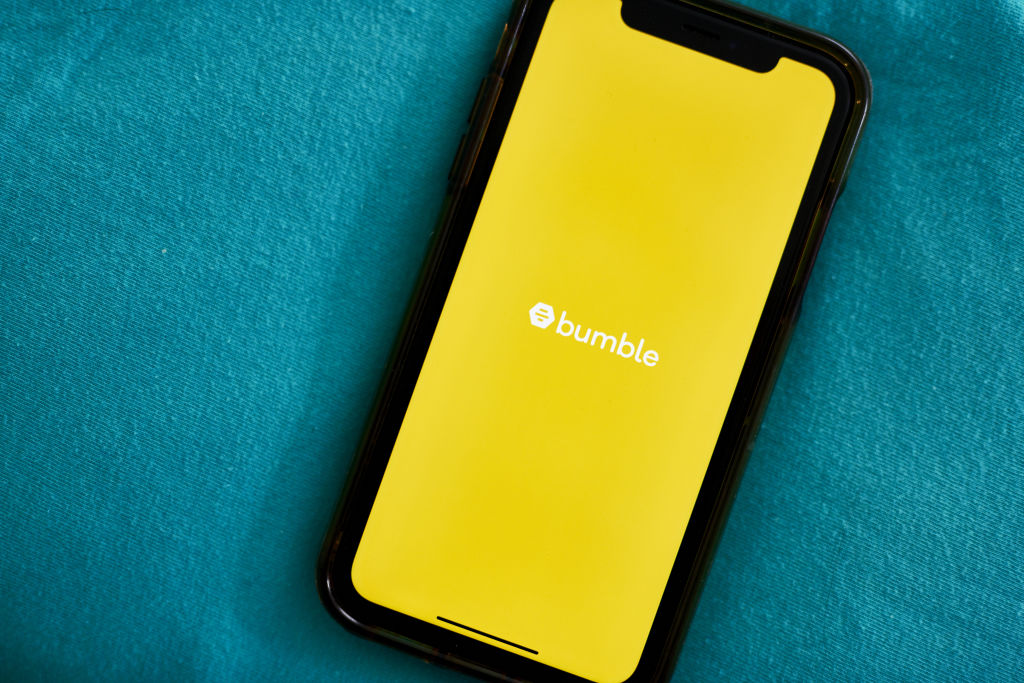
Source: Bloomberg / Getty
Last September I came across a standout submission to a dating column on Teen Vogue. After leaving a date, a young woman recalled the person she’d linked up with sending her a message saying he’d wished she would have disclosed that she was “plus size” before they’d put effort into meeting up in person. Even though a big part of me chalked it up to young male immaturity on the guy’s part, the girl’s submission to the column has stuck with me since.
“After a recent in-person Bumble date,” her submission read, “my date (a cis man) texted me saying, ‘You should consider putting that you’re plus-size in your bio.’ I was appalled. My photos look like me—they’re an accurate representation. Why do I have to disclose that I’m not thin?”
The young woman brought up a thing that many people face in the filter-obsessed, “Instagram baddie”-seeking online world we’re all living in. Even though we feel our online profiles are an accurate representation of us, the question she posed was more focused on what we’re supposed to do if other people consider us as a “catfish” — a person who’s not as good-looking, attractive, or in this case, “thin” in real life as they appear online.
The young woman who made the submission said she was only 16. As someone who’s on dating apps and of legal age to be on them, I can only imagine how discouraging and hurtful that must have felt for her to hear. Even though I’m an adult and might have tougher skin towards handling the insanity that is online dating, I can still relate to her sensitivity about whether or not she should share the fact that she’s “not thin” to prospective suitors. While some wouldn’t consider me to be technically “plus-sized,” my reality is that I’m not thin either. In fact, most women in America aren’t.
Bumble, the online dating app mentioned in the girl’s submission, recently made an effort to combat the fatphobia and body shaming that can come with online dating. In a press release from earlier this week, the app announced that it is updating its “terms and conditions to explicitly ban unsolicited and derogatory comments made about someone’s appearance, body shape, size, or health.” What was great about the press release was that Bumble gave clear terms for what body shaming is, how it could present itself on the app, and how community users could report any incidents if they felt they’ve been subjected to it.
“Body shaming is not acceptable on or off of the Bumble app,” the statement said. “For those who may not know, body shaming means forcing your opinion of a ‘good body’ onto others. It can come in the form of sending a message to someone that’s critical of their body or health, or by stating in your Bumble bio that a certain kind of body is unacceptable or undesirable. Body shaming includes fat shaming, health shaming, criticizing skin or hair, thin shaming, unsolicited opinions, and mocking someone’s physical features.”
“People who use body shaming language in their profile or through the Bumble app’s chat function will receive a warning for their inappropriate behavior, and repeated incidents or particularly harmful comments will result in being banned from the platform,” the press release added. “If body shaming happens to you on Bumble you can report it using tools within the app, which include Block & Report, Unmatch & Report, and Hide & Report.”
The app’s effort to combat body shaming in online dating is a really big and needed step. According to CNBC, a Harvard study from 2019 found that “people who use dating apps are 2.7 to 16.2 times more likely to have an eating disorder than those who don’t use the apps” — with minority groups using them “having ‘significantly higher’ odds of using unhealthy weight management behaviors.”
Even though the issue may seem trivial to some, the study highlighted the complex dynamic the pressures of online dating and “not being a catfish” have on people, with the potential to lead to body dysmorphic thoughts, and subsequent eating disorders.
Speaking on how body shaming negatively impacts people’s health both mentally and physically, Bumble encouraged its users not to comment on other people’s body image at all.
“Body shaming can do harm to the mental and even physical health of its recipients, so if you’re not sure if a message will come across as body shaming, a good rule of thumb is simply not to comment on another user’s body or health at all. Find something else about their profile to talk about. Or, if you’re not interested in someone, you can swipe left.”
Even though Bumble’s “rule of thumb” might seem strict, the reality is that if people match on a dating app, they both clearly already think the other person is physically attractive or worth pursuing to some extent. The app isn’t saying that people can’t exchange compliments on users’ appearances, but it is saying that shaming people for the way that they look, especially when it comes to their weight, will no longer be tolerated.
Bumble’s new standard won’t stop people from getting called a catfish, but it will curb people shaming others for their bodies and how they choose to present themselves online. That alone makes me feel better about using their app, dating its users, and using its supportive resources. In a perfect world, the app’s new rule will also inform and influence users on how to not comment on other people’s bodies IRL too.
To those thinking, “Who cares whether people think I’m a catfish anyway?” — the reality is everyone cares, even if it’s just a little, and that’s okay. While everyone naturally shows photographs of themselves at their best angles, nobody wants to be considered a fake or a phony when things transfer off apps into the real world. Hopefully, other dating apps will follow suit.









